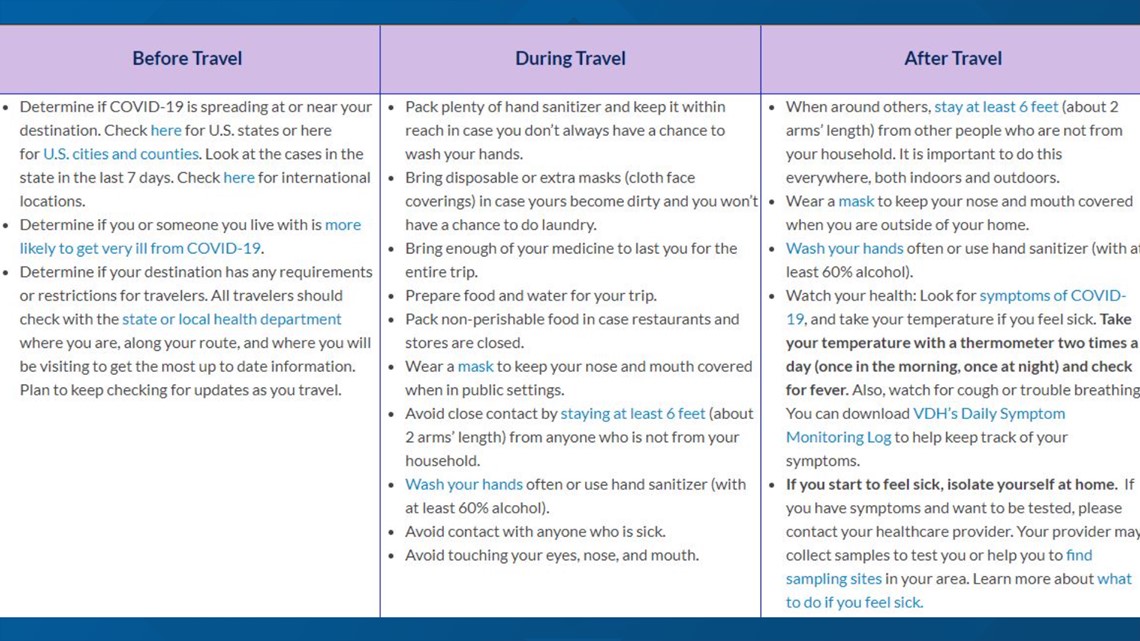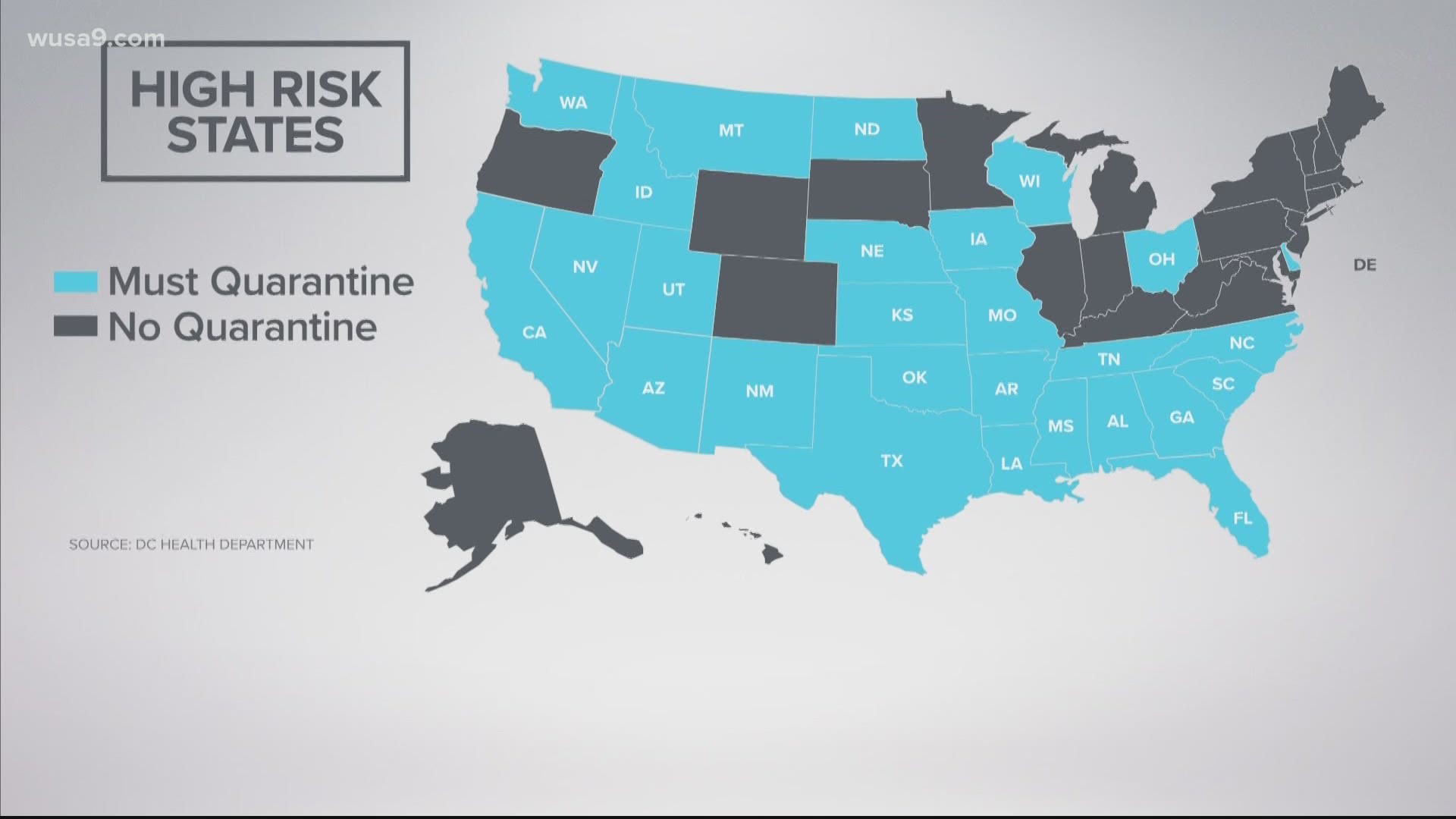WASHINGTON — The end of the year is quickly approaching and people are deciding on their travel plans to see friends and family for the holidays — all while in the midst of the coronavirus pandemic.
In an interview on Wednesday with CBS Evening News' Norah O'Donnell, Dr. Anthony Fauci highlighted the concern about the virus spreading in the fall. He said people should be careful "about social gatherings, particularly when members of the family might be at a risk because of their age or their underlying condition."
That includes holiday gatherings like Thanksgiving, which is right around the corner.
"You may have to bite the bullet and sacrifice that social gathering unless you're pretty certain that the people that you're dealing with are not infected," Fauci said.
Gathering with your friends and family has never required so much thought, with questions ranging from 'Should I travel for the holidays in 2020?' How can I remain safe while traveling?' 'Do I have to quarantine when I get back?' lingering in your mind.
If you're choosing to travel this holiday season, here's what you can expect if you are traveling to and from the D.C. area:
Traveling to and from D.C.
Anyone coming into the District from a high-risk state, who is traveling for non-essential activities, will be required to self-quarantine for 14 days upon their arrival.
Individuals traveling from high-risk states after essential travel, or arriving in the District for essential travel, are required to self-monitor for symptoms of COVID-19 for 14 days and, if they show signs or experience symptoms of COVID-19, they are asked to self-quarantine and seek medical advice or testing.
Travel to and from Maryland and Virginia is exempt from Mayor Muriel Bowser's order.
As of Oct. 5, here's a list of the high-risk states that are listed in D.C.'s self-quarantine list:
- Alabama
- Alaska
- Arkansas
- Delaware
- Florida
- Georgia
- Idaho
- Illinois
- Indiana
- Iowa
- Kansas
- Kentucky
- Louisiana
- Minnesota
- Mississippi
- Missouri
- Montana
- Nebraska
- Nevada
- New Mexico
- North Carolina
- North Dakota
- Oklahoma
- South Carolina
- South Dakota
- Tennessee
- Texas
- Utah
- West Virginia
- Wisconsin
- Wyoming
All individuals coming into D.C. from high-risk states can find the full order from Mayor Bowser online.
Traveling to and from Maryland
The Maryland Department of Health (MDH) strongly recommends that all Marylanders refrain from nonessential travel outside of Maryland due to the recent increase in COVID-19 infections in other states.
MDH recommends the following in case residents do decide to travel outside of Maryland for the upcoming holidays:
- Any resident returning from out-of-state or any out-of-state traveler should either get tested for COVID-19 promptly upon arrival in the state or within 72 hours before travel to the state.
- MDH encourages out-of-state visitors to be tested within 72 hours prior to arrival and to cancel travel if they receive a positive result.
- Visitors waiting for their test results should stay at home between the time of their test and their arrival in Maryland or to self-quarantine at their hotel.
- Any resident who travels to a state with a COVID-19 test positivity rate above 10% should get tested and self-quarantine at home until the test result is received.
- NOTE: The District of Columbia and the Commonwealth of Virginia are exempt from this recommendation.
- Essential workers, as previously referenced in the Governor’s Office of Legal Counsel’s COVID-19-04 Interpretative Guidance, are exempt from the quarantine recommendation if they are returning or traveling to Maryland to perform essential work, as well as employee commuters who leave/enter the state on a daily basis and have work-based COVID-19 screening procedures.
Traveling to and from Virginia
Consistent with CDC guidance, Virginia currently does not have any quarantine requirements for people arriving in the commonwealth from other U.S. or international locations, as of Oct. 7.
In Virginia, wearing a mask is required for any person 10 years or older while inside public buildings -- per Executive Order 63.
Virginia Department of Health (VDH) recommends that all travelers should check with the state, tribal, or local health department where you are, along with your route, and where you will be visiting to get the most up to date information -- in case there are travel restrictions, stay-at-home orders or quarantine requirements upon arrival, state border closures, or other requirements.
For more information regarding Virginia travel tips and information, visit VDH's Travelers site.


If you are planning to travel for an upcoming holiday, see information about holiday celebrations and travel courtesy of the CDC.

